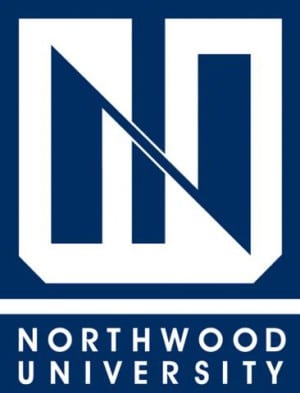A true entrepreneur is a doer, not a dreamer.
-Nolan Bushnell

It takes more than a vision to build a successful business. To succeed as an entrepreneur, you’ll need ambition, grit, strategy, little luck, and a lot of know-how. There’s no substitute for a specialized education in the ins and outs of launching your own business, and no better way to get started on the right foot than with a Bachelor’s Degree in Entrepreneurship.
Of course, there are many excellent schools for startups, and every bachelor’s degree program is different. Some are accelerated, giving students the opportunity to earn a Bachelor’s Degree in Entrepreneurship in less than the traditional four years. Some are offered online, giving working adults the chance to study and learn within their busy schedules. Some schools stress experiential learning, with business internships and practicums. Whichever Bachelor’s in Entrepreneurship program you choose, you’ll likely study a few of the same key areas, including Entrepreneurial Marketing, Building Venture Capital, and Startup Management. You’ll likely develop a business plan in the course of your studies, and may even serve out a practicum, internship or project-based learning experience. You’ll also have the chance to develop valuable professional connections with professors, peers, and business partners.
If you want to launch your dream business with a strong and comprehensive knowledge base, check out our ranking of the Best Bachelor’s Degrees in Entrepreneurship. Our top schools ranking covers the very best institutes for this specialized business degree, which we’ve rated for financial accessibility, academic quality, and flexibility. Explore your options to find the school of your dreams, and start turning your business vision into reality.
Methodology:
- Financial Score (1/3):
- Average net price after financial aid (in and out-of-state where applicable).
- Percentage of students receiving financial aid
- Academic Quality Score (1/3):
- Student to faculty ratio
- Freshman retention rate
- 6 year graduation rate
- Support and Flexibility Score (1/3)
- support for non traditional learners and flexibility-enhancing features
1. Buena Vista University

Founded in 1891, Buena Vista University (BVU) is a private, Christian, liberal arts institute. BVU is located on the shores of Storm Lake, a 3,200-acre natural lake, in Storm Lake, Iowa, with 17 additional branch campuses throughout the state serving graduate studies and continuing education. The school is affiliated with the Presbyterian Church. The school emphasizes hands-on learning, with a variety of internships, community engagement, and study abroad experiences offered. BVU serves a small student body of 795 undergraduates, and boasts a remarkably low student to faculty ratio of just 10 to one. BVU offers a total of 42 majors, the most popular of which are Business, Education, and Biology and Biomedical Sciences. U.S. News and World Report ranks the school 24th in Regional Colleges Midwest and an impressive 15th in Best Value Schools.
Buena Vista University awards a bachelor’s in entrepreneurship which features a winning combination of academic quality, flexibility, and generous financial aid. This bachelor’s program is designed as a degree-completion program, aimed at transfer students, and those holding an associate’s or bachelor’s degree. BVU’s entrepreneurship program is offered at 11 on-campus locations or in a fully online format. The degree requires the completion of 55 credits within the major: 14 courses in Business Foundations and 6 courses in Entrepreneurship. Entrepreneurship courses include Organization Theory, Social Responsibility of Business, and Advanced Entrepreneurship, along with an Internship in Marketing. Class sizes are small, courses are rigorous, and the program is wellespected. U.S. News and World Report ranks BVU 264th in Best Online Bachelor’s Programs.
The bachelor’s in entrepreneurship program is also highly flexible, with accelerated classes lasting just 8 weeks each, and six start dates per year. Fully 100% of full-time, first-time undergraduates enrolled in BVU’s online program receive financial aid, and both graduation and freshman retention rates are high, at 53% and 73% respectively. This wellounded program easily takes first place in our ranking of the Best Bachelor’s in Entrepreneurship.
- Homepage
- Financial Score: 6
- Academic Quality Score: 3.3
- Support and Flexibility Score: 2
2. University of Maine at Machias

The University of Maine at Machias (UMM) is a small, environmental liberal arts university located in Machias, Maine, and is one of seven members of the University of Maine System. UMM was founded as the Washington State Normal School, a teacher training institute, in 1909, and is situated in a rural area on the Machias River, close to the Atlantic Ocean. This small school has a total enrollment of 800 undergraduates, and offers a total of 12 majors, including Environmental Studies, Psychology, Biology, Business and Entrepreneurial Studies, and Education. Students enjoy personal attention thanks to the university’s remarkably low student to faculty ratio of 13 to one. The Carnegie Foundation has designated UMM as a “Community Engaged Campus,” in recognition of the school’s many experiential and community-based learning and service opportunities. UMM was ranked as one of the Most Affordable Online Colleges in Maine by Online Colleges, and is ranked 173rd in National Liberal Arts Colleges by U.S. News and World Report.
The University of Maine at Machias awards an on-campus or online bachelor’s in Entrepreneurship and Business with an excellent financial profile and several available concentrations. The core of the program consists of nine foundation courses in Business, Marketing, Accounting, Economics and Statistics, totaling 27 credit hours. Students pursuing the bachelor’s in entrepreneurship at UMM can the choose between several concentrations, totaling 33 credits. Options include Non-Profit Organization Management, and Small Business & Entrepreneurship, and students may even design their own concentration with the help of a departmental advisor. UMM tops our ranking of the Best Bachelor’s in Entrepreneurship on the metric of Financial Score, with the lowest overall tuition, and a full 100% of full-time, first-time undergraduates receiving financial aid.
- Homepage
- Financial Score: 1
- Academic Quality Score: 7.3
- Support and Flexibility Score: 1
3. University of Utah

Located in Lake City, Utah, the University of Utah (U of U) is a public, space-grant research university. Founded in 1850, U of U is the oldest institute of higher education in the state, as well as he flagship of the Arizona University System. The university is home to a school of law and the state’s oldest school of medicine. U of U serves a massive student body of 31,673, and awards degrees in 100 undergraduate majors and over 92 graduate degrees. The school has earned the highest-possible research classification offered by the Carnegie Foundation, that of “Doctoral University with Highest Research Activity.” With annual research expenditures topping $518 million, it is among the nation’s top 50 schools for research expenditure. University faculty and researchers have won 22 Rhodes Scholarships, two Turing Awards, four Nobel Prizes, 8 MacArthur Fellowships, and multiple Pulitzer Prizes. U.S. News and World Report ranks U of U 110th in National Schools and 136th in Best Value Schools.
The University of Utah offers a highly esteemed BachelorÕs Degree in Entrepreneurship. The program is administered by the U of U Department of Entrepreneurship & Strategy at the highlyanked David Eccles School of Business, which also provides electives, a certificate and a minor in entrepreneurship.The School of Business also oversees the Lassonde Entrepreneur Institute, a nationally ranked, interdepartmental hub for student entrepreneurship and innovation. Through this Institute, students can participate in entrepreneurial workshops, networking events, business-plan competitions, startup support, innovation programs, graduate seminars, scholarships, and community outreach. Those pursuing the bachelor’s in Entrepreneurship must complete 7 core Entrepreneurship courses and 7 electives within the discipline, in addition to the general U of U and Business School core requirements. Tuition is modestly prices, particularly for such a reputable program. Entrepreneurship classes include Entrepreneurial Analytics, Entrepreneurial Marketing, and Business Model Innovation. U.S. News and World Report ranks U of U 264th in Best Online Bachelor’s Programs. LendEDU ranks the school #1 in the nation for Best for Aspiring Entrepreneurs and the Princeton Review ranks it 15th for Undergraduate Entrepreneurship Education.
- Homepage
- Financial Score: 6
- Academic Quality Score: 3
- Support and Flexibility Score: 1
4. American Public University System

American Public University System (APUS) is a private university which is based in Charles Town, West Virginia, and offers classes and degrees exclusively online.
APUS is a joint venture between American Military University (AMU) and American Public University (APU), and the school caters to both military members seeking specialized training and civilians interested in public service studies. About 56% of students reported that they served in the military on active duty. The school awards some 200 professional certificates, associate’s, bachelor’s, master’s, and doctoral degrees. The most popular undergraduate majors include Business Administration and Management, Criminal Justice, International Studies, and Psychology. U.S. News and World Report ranks APUS 94th in Best Online Bachelor’s Programs.
American Public University System awards an online bachelor’s in entrepreneurship which is accessible, flexible, and convenient. The 120-credit program includes 33 credits in Entrepreneurship coursework, with topics like Financing a New Venture, Practical Law for the Entrepreneur, and Entrepreneurs as Leaders. Students may also opt for one of five concentrations: Food and Beverage Industry, General, Retail Industry, Small Business, or Sports Fitness. Accessibility and flexibility are hallmarks of education at this online university. APUS has an open enrollment policy, accepting all applicants holding a high school degree or equivalent. Courses are offered in 8-week and 16-week sessions, with monthly start dates allowing students to being their program as soon as they are ready. Because the school is heavily invested in online learning, students pursuing an online bachelor’s in entrepreneurship at APUS have access to a wealth of resources and supports, including an online library, virtual student clubs, writing workshops, live tutoring and distance mentoring. With the school’s low tuition and high rate of full-time, first-time undergraduates receiving financial aid, APUS has the second-highest Financial Score of any school included in our ranking of the Best Bachelor’s in Entrepreneurship.
- Homepage
- Financial Score: 2
- Academic Quality Score: 7.6
- Support and Flexibility Score: 1
5. Grand Canyon University

Grand Canyon University (GCU) is a private, Christian institute, which is based in Phoenix, Arizona. The school was founded in the city of Prescott in 1949 by the Arizona Southern Baptist Church, and moved to Phoenix in 1951. Today, GCU is interdenominational institute serving a student body of 19,500 undergraduate and graduate students on campus, and an additional 60,700 online. Popular areas of study include health care, business, engineering, and Christian theology, and most majors include the potential for a high degree of specialization through concentrations. Faith-based ideas are incorporated across all disciplines. GCU has a strong full-time freshman retention rate of 66%. The Carnegie Foundation has designated the university as a “research university with moderate research activity” and U.S. News and World Report ranks it 231st in National Universities.
Grand Canyon University offers a convenient online Bachelor’s Degree in entrepreneurship. The course of study covers 120 credits in total: 34-40 in General Education, 56 in the Entrepreneurship major, and 24-30 in Open Electives. The curriculum covers a comprehensive range of subjects in Entrepreneurship, including studies in legal, human resources, accounting, finance and marketing. Class titles include Business Planning for Entrepreneurs, Public Relations and Networking Skills, and Operations Management. On-campus classes are 15 weeks long, while online classes are accelerated, lasting just 7 weeks, and up to 90 credit hours of approved coursework may be transferred in from a previous school. GCU has a low tuition for online classes, just $470 per credit, and a total of 99% of full-time, first-time undergraduates receive financial aid, giving this university one of the highest Financial Scores of any school included in our ranking of Best Bachelor’s in Entrepreneurship. The school also scores second-highest for Academic Quality, thanks to a combination of high rates of retention and graduation, coupled with a relatively low student to faculty ratio.
- Homepage
- Financial Score: 7
- Academic Quality Score: 8.3
- Support and Flexibility Score: 2
6. Northwood University

Located in Midland, Michigan, Northwood University (NU) is a private university, which dates back to 1959. The school serves some 3,545 undergraduate and graduate students, more than half of whom are exclusively enrolled in the school’s wellespected online programs. Almost one-half of those enrolled at NU are international students, with the Netherlands, China, Germany, Malaysia, Sri Lanka, and Canada most strongly represented. NU’s most popular majors Marketing, followed by Business Administration, Accounting, and Sport and Fitness Administration. Northwood’s student to faculty ratio is very low at 12 to one, and some 97% of faculty hold advanced degrees.
Northwood University offers an on-campus or fully online bachelor’s in entrepreneurship which emphasizes practical and experiential learning. Class titles include Philosophy of American Enterprise, Risk Analysis & Sources of Capital, Business Plan Development, and New Venture Finance. The curriculum consists of 126 credits, including a general core, Entrepreneurship major requirements, and several electives. The program includes a required internship component, and a variety of hands-on learning opportunities, including entrepreneurial roundtables, mentorship from Entrepreneurs-in-Residence, business community partnerships, workshops and training programs. NU is ranked 174th in Best Online Bachelor’s Programs by U.S. News and World Report. The entrepreneurship program at NU stands out for its high graduation rate of 57%, high full-time freshman retention rate of 77% and low student to faculty ratio of 12 to one, each of which merits second-best of any school included in our ranking of Best Bachelor’s in Entrepreneurship.
- Homepage
- Financial Score: 8.5
- Academic Quality Score: 2
- Support and Flexibility Score: 1
7. University of Minnesota Crookston

The University of Minnesota Crookston (UMC) is a member of the University of Minnesota system which is based in Crookston, Minnesota. The school’s history dates back to 1906, with the establishment of the Northwest School of Agriculture (NWSA), an regional high school associated with a state-sponsored experimental farm. The NWSA became a two-year institute of higher education in 1963, and a full baccalaureate degree granting institution in 1993. Today, UMC serves a total of 1,823 students through 34 majors, and 22 minors, and 39 concentrations, including niche studies such as agronomy, aviation, bio-fuels and equine science. The school has earned top rankings from U.S. News and World Report: 33rd in Regional Colleges Midwest, and 1st in Top Public Schools. All programs require an internship and mobile computing component, ensuring that graduates enter the workforce with applied skills as well as academic distinction.
The University of Minnesota Crookston offers a bachelor’s in Entrepreneurship online, on-campus or in a hybrid format, as well an entrepreneurship minor within its undergraduate business program. As with other UMC platforms, the entrepreneurship program emphasizes “learning by doing” through a variety of field-based projects and internships. The curriculum requires the completion of 40 credits in entrepreneurship, in addition to UMC’s general education core. Class topics within the major include Introduction to Entrepreneurship and Small Business, Entrepreneurial Marketing, and Entrepreneurial and Small Business Finance. Online learners can also participate in the UCM Undergraduate Research Opportunities Program (UROP), designing and conducting research remotely. UCM boasts especially high rates of graduation (54%) and full-time freshman retention (76%), scoring 3rd place on each metric in our ranking of Best Bachelor’s in Entrepreneurship. U.S. News and World Report ranks UMC 264th in Best Online Bachelor’s Programs, and College Choice ranks the school 11th in ÒBest Online BachelorÕs in Entrepreneurship Degrees.”
- Homepage
- Financial Score: 7
- Academic Quality Score: 4.3
- Support and Flexibility Score: 1
8. Ashford University

Ashford University is private university based in San Diego, California, which offers classes and degrees exclusively online. Ashford has a large student body of 48,895 , but maintains a low student to faculty ratio of just 13 to one. As a distance education school, Ashford serves primarily non-traditional learners, mainly adults who work full time while pursuing degrees part-time, and as many as 25% active duty military members. As such, the university strives to provide education which is flexible, accessible, affordable, and workplaceelevant.
Ashford offers an online Bachelor’s in Entrepreneurship through the popular Forbes School of Business and Technology at Ashford University. The course of study consists of 120 credits, with 55 in general education, and 45 within the Entrepreneurship major. Class topics in the major include Venture Capital & Banking, Principles of Finance, and New Business Strategy. Courses are intended to be taken one at a time, and are offered in an accelerated, five-week format. Students in the bachelor’s in entrepreneurship program may also choose to pursue a specialization in Logistics Management. Ashford supports its distance learners through an array of remote resources, including an online library, writing center, career counseling, peer mentoring and even virtual student clubs.
- Homepage
- Financial Score: 8
- Academic Quality Score: 10.6
- Support and Flexibility Score: 2
9. Northern Arizona University

Cleary University is a private business university which has its main campus in Howell, Michigan, and additional campuses in Ann Arbor and Detroit. The school was founded in 1883, and has been a higher institute of business since its inception.
Cleary is highly focused on delivering practical and project-based education focused on business innovation and entrepreneurship. Cleary awards certificates, ABA, BBA, and MBA degrees. Total enrollment is 852 undergraduate and graduate students, and class sizes are small, with a student to faculty ratio of just 14 to one. A large number of Cleary students are adults returning to school, and Cleary not only has a generous transfer credit policy, but also freely awards academic credit for experience, allowing students to opt out of as much as a year of study with departmental approval. Qualifying experiences can including employment, workplace or military training, volunteer service or involvement in professional organizations.
Cleary University awards a bachelor’s in entrepreneurship as a BBA (bachelor’s of business administration). Unlike many entrepreneurship bachelor’s degree programs, which incorporate a general education core, the bachelor’s program at Cleary has an exclusive focus on business. The curriculum follows a mainly prescribed sequence, with about seven 3-credit electives included in the 120-credit academic plan. Class topics include Marketing the New Business, Business Research and Communication, and Startup Seminars. A number of upper-level courses are based around professional business projects, developing applied skills that new graduates can put to immediate use. Entrepreneurship students can also participate in Cleary’s Center for Innovation and Entrepreneurship (CIE), which serves as a startup incubator and forum by providing services, space, events and education to small business owners, students, entrepreneurs and managers.
- Homepage
- Financial Score: 5.5
- Academic Quality Score: 8.6
- Support and Flexibility Score: 2
10. Rasmussen College

Rasmussen College is a private institution which is headquartered in St. Paul, Minnesota, with 24 additional campuses in Florida, North Dakota, Wisconsin, Illinois and Kansas. Since its founding in 1900 by Walter Rasmussen as the Rasmussen Practical School of Business, the school has focused on delivering career-focused education, and popular areas of study include nursing, justice, education and internet marketing. Today, Rasmussen awards more than 70 different diplomas, certificates, associates and bachelorÕs degrees, and serves primarily working adults who are enrolled in classes on a part-time basis. Rasmussen employs an incremental approach to degree-granting, dubbed the ÒCredential LadderÓ, which awards lower degrees along the path towards higher ones. Thus, a student on the path to a bachelor’s degree would automatically earn an associate’s degree once they had accrued sufficient credits.
Rasmussen College grants an accelerated and fully online Business Management Degree with an Entrepreneurship Specialization through their Florida-based branch. This bachelor’s degree is designed as a degree completion program for those with preexisting undergraduate degrees, such as those with an associate’s in business, learners returning to their studies, or those with a bachelor’s degree in another discipline. As such, the program requires fewer credits than a traditional bachelor’s, and can be completed in as little as 18 moths. Classes within four-course the Entrepreneurship specialization include: Business Innovation, Funding a New Business, Sales and Marketing for New Business Ventures, and Law, Ethics, and Entrepreneurship. Online courses are offered as traditional and competency-based education courses (CBE). CBE courses are organized around self-paced modules, which are more student-directed than traditional classes while still including faculty support. With a fast track to a bachelor’s degree and flexible learning formats available, the online bachelor’s program from Rasmussen is an excellent option for working adults in search of a convenient and efficient option.
- Homepage
- Financial Score: 9.5
- Academic Quality Score: 11
- Support and Flexibility Score: 2
Carrie Morris
Author
Warren Dahl
Editor-in-Chief

